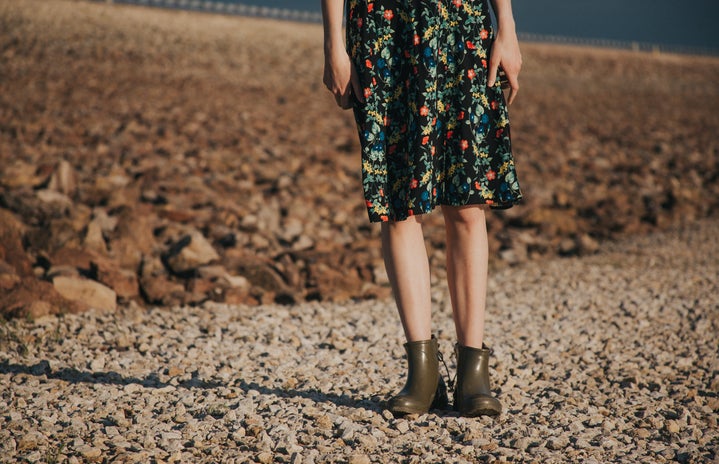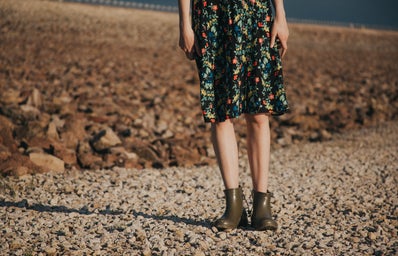As International Women’s Day approaches, it is not only important to look at the accomplishments of women in the different spheres of society, but the discrimination and violence women face on a daily basis. One social issue that predominantly affects women is human trafficking. As the United Nations (UN) reported in 2019, most victims of human trafficking are girls and women, with 75% trafficked for sexual exploitative purposes. Despite this, attempts to regulate trafficking worldwide are sorely lacking, with the UN unable to measure statistically how many women and children are trafficked in countries around the world. As a result, it is up to charities and nonprofits to do a lot of work rehabilitating survivors of human trafficking, helping them recover from mental and physical abuse, often received from a young age.
It was an organization like this which I have interned at for the past two summers. Ally Global Foundation is a “Canadian charity that prevents human trafficking and helps survivors build healthy, independent lives.” Based in Vancouver, Ally partners with local leaders in Nepal and Cambodia to bring aid and assistance to survivors of human trafficking through “safe housing, education and aftercare.” By assisting through this network, local leaders are able to educate the wider community and bring more awareness to the populus on human trafficking and its impacts. Ally is funded through donors and fundraisers through which eight safe homes have been built with over 200 children being rescued, 320 students in schools, 108 survivors on “university scholarships and vocational training programs”, and 3,752 people reached through “prevention programs”.The Ally team works incredibly hard to make sure as many survivors are being helped as possible, and are currently building a property spanning over “200,000 sq ft of new safe homes and school facilities” alongside those local partners based in Nepal. This ‘Build Beyond’ project is just one of the amazing programs Ally is initiating to bring more attention to this pervasive issue.
For example, in Canada, there have long been issues relating to human trafficking — particularly with Indigenous communities. Despite Indigenous women accounting for roughly 4% of Canada’s population, they make up 50% of reported human trafficking cases. Ally is currently trying to combat this through their newer program, ‘Makwa Dodem’, which is led by Indigenous people and is “aimed at equipping and empowering Indigenous communities to prevent sexual exploitation.” Paired with educational initiatives for Canadian classrooms and a dedicated team, Ally is doing so much to try and combat a long-standing issue worldwide.
When I first began working for Ally the summer after my senior year in high school, I came from a very sheltered environment. I was so unaware of the ease at which human traffickers envelop themselves in local communities and prey on vulnerable individuals. Especially when it came to North America, I had no idea of the high numbers of girls trafficked through social media or friends they thought they knew. The only other time I had heard this was during the Jeffery Epstein trial and subsequent documentary, Filthy Rich, but you never think that happens in your local community. However, part of the Ally onboarding process speaks to the connections they have in Nepal and Cambodia and while they keep all the survivors anonymous, the local leaders have rooms in the Vancouver office named after them, so you quickly learn about the wider support system that Ally operates in.
A large part of my role focused on working towards their largest fundraiser, Move for Freedom, where teams band together in sports or activities to raise money towards projects in Nepal and Cambodia and help sustain support and aftercare for survivors. Alongside this, I also participated in a survey group where I visited a local high school as a representative and gave a presentation on Ally. The goal was to build up a portfolio of high school resources that would be informative and effective for preventing human trafficker access to children. Predators who scan through social media have access to teenagers and can easily build trust and a false sense of security with fake profiles and manipulation. I remember sitting in a presentation from an outside educator who spoke of her interactions with human traffickers through social media networks where they tried to gain her trust in the hopes of sexually exploiting her. Cases like this make you realize just how close to home the issue is. In this way, Ally is quite unique. Whilst focusing on the issue internationally, where children and women are largely impacted through essentially slavery and servitude, Ally also focuses on the more local problem in Canada, and has found a multitude of ways to address the issues in radically different environments. To this end, they have also made a film alongside the media group Veto Creative Agency titled The Twelve Thousand. This film focuses on the story of one girl who was trafficked from her home in Nepal and “sold into sex trafficking in India” at the age of 13. It is stories like this which put a human face to the statistics and help people realize just how massive a problem exists.
As International Women’s Day is just around the corner, it seems prudent to focus on issues such as this, where women are disproportionately affected. While it is great to look at the multitude of women’s achievements, and to see just how far women have come in gaining equality and an international voice, there still exist places — many closer than you believe — where that is not the norm. Millions of women still go through their lives in harsh situations without help and without a sense of freedom. Ally Global Foundation is one such organization trying to combat this issue, and working for them was an amazing opportunity to learn about the issue and the responsibility we all have to find solutions. Therefore, it makes sense to speak about human trafficking, in particular sexual trafficking, as it pertains to women and women’s health. As someone whose perspective was greatly widened by this experience, I hope that this International Women’s Day you take an extra moment to not only focus on the achievements of women but how we can continue to help make the world a better and safer environment for women of all cultures and backgrounds.


